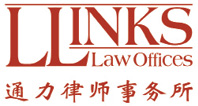On 29 September 2013, the Shanghai municipal government issued the Administrative Measures for the Filing of Outbound Investment Projects and the Administrative Measures for the Filing of the Outbound Investment in, and Establishment of, Enterprises for the China (Shanghai) Pilot Free Trade Zone (FTZ). More recently, the National Development and Reform Commission (NDRC) issued the Administrative Measures for the Approval and Filing of Outbound Investment Projects and the Ministry of Commerce (MOFCOM) issued the Administrative Measures for Outbound Investment (Amended) (Draft for Comment), manifesting the newest policy direction of government authorities in respect to outbound investment.

David Yu
通力律师事务所
合伙人
Partner
Llinks Law Offices
However, when the Shanghai FTZ measures for the filing of projects and the establishment of enterprises were issued, the 2004 version of the Interim Administrative Measures for the Approval of Outbound Investment Projects and the 2009 version of the Administrative Measures for Outbound Investment were applicable. What impact will the recently issued NDRC measures and MOFCOM draft for comment have on the current relevant regulations of the FTZ?
The NDRC measures
While facilitating to a certain extent the filing of outbound investment projects in the FTZ, the issuance of the NDRC measures also give rise to some new issues.
Expansion of the scope of filing of the FTZ committee. Under the new system that combines approval and filing established by the NDRC measures, filing of the outbound investment projects of local enterprises in which the Chinese party’s investment is not more than US$300 million is carried out by the competent investment authority of the provincial-level government. Whereas, pursuant to the FTZ project filing measures, the project filing authority exercises, in respect of enterprises registered in the FTZ, administration over general outbound investment projects within Shanghai’s purview through the filing system. This signifies that the FTZ committee will carry out the filing of outbound investment projects in which the investment amount of the Chinese party is not more than US$300 million.
Even though the NDRC measures further reform the outbound investment project administration model, the FTZ nevertheless manifests certain advantages in this sector. As compared to the FTZ project filing measures, the NDRC measures do not set out specific provisions on procedural details, such as the filing procedure, etc. FTZ enterprises still enjoy relatively large procedural advantages.
Differences in filing conditions. Both the second paragraph of article 6 of the FTZ project filing measures and article 22 of the NDRC measures set conditions for the filing of a project. Comparatively speaking, all of the conditions in the FTZ project filing measures find a manifestation in the NDRC measures, but the latter additionally specifies that “outbound investment projects shall comply with outbound investment policies, as well as relevant regulations of the state on administration of the capital account”. Accordingly, notwithstanding the fact that the FTZ project filing authority is tasked with the filing of the outbound investment projects of FTZ enterprises, the filing authority may consider the above-mentioned additional provision, which applicants should be aware of when implementing relevant projects.
Difference in the term of validity of filings. The FTZ project filing measures specify that project filing documents are valid for two years, but are silent on whether applications can be made for extensions. In contrast, the NDRC measures specify that construction project approval documents and filing notices are valid for two years, and those for other projects are valid for one year. If an investment entity fails to complete the relevant procedures during the term of validity, it may apply for an extension. This difference needs to be further verified with the FTZ project filing authority to avoid the risk of filing documents becoming invalid.

Teddy Li
通力律师事务所
律师
Attorney
Llinks Law Offices
MOFCOM draft for comment
Although the MOFCOM draft for comment has not yet been officially issued and could be further revised, from the perspective of understanding policy developments it is still necessary to compare it with the FTZ measures for the filing of the establishment of enterprises. However, the following is provided only for reference.
Scope of filing. Article 6 of the MOFCOM draft for comment specifies that if an outbound investment involves a sensitive country/region or industry, it must be submitted to MOFCOM for approval. Article 9 proceeds to specifically explain the basic scope of “sensitive country/region or industry”. The measures for the filing of the establishment of enterprises specify that the scope is handled by directly citing the provisions of the existing administrative measures for outbound investment. However, the MOFCOM draft for comment makes certain revisions to the scope. Once the MOFCOM draft for comment is officially issued and implemented, the scope of application of the FTZ measures for the filing of the establishment of enterprises should be revised accordingly. The potential effect is as follows:
- The FTZ’s scope of filing of outbound investments could “shrink”. With respect to investments in countries subject to UN sanctions, and investments involving the use of products the export of which is restricted by the state, when an enterprise is carrying out filing with the FTZ committee, it should pay attention to the revision of the scope of sensitive countries/regions and industries made by the MOFCOM draft for comment;
- With respect to the establishment of outbound special purpose vehicles and outbound investments requiring the solicitation of investors in China, MOFCOM policies may show signs of “loosening”. We have noticed that the MOFCOM draft for comment does not set out any requirements in respect of this.
Filing of joint investments by enterprises. The MOFCOM draft for comment specifies that when two or more enterprises are to jointly invest in and establish an enterprise abroad, the largest shareholder is to be responsible for making the application after seeking the written consent of the other investors. It should be noted that such a rule may have a certain impact on the procedure for the filing of outbound investments in the FTZ.
David Yu is a partner and Teddy Li is an attorney at Llinks Law Offices.
上海市银城中路68号时代金融中心19楼
邮编: 200120
19/F, ONE LUJIAZUI, 68 Yin Cheng Road Middle
Shanghai 200120, China
电话 Tel: +86 21 3135 8666
传真 Fax: +86 21 3135 8600
电子信箱 E-mail:
david.yu@llinkslaw.com
teddy.li@llinkslaw.com
www.llinkslaw.com






















